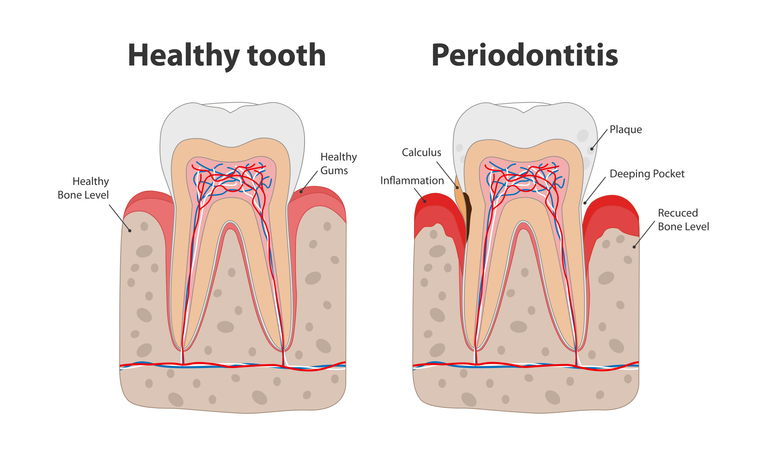 Periodontal disease, more commonly known as gum disease, is a serious oral health condition that affects millions of Americans every year. Often referred to as a “silent disease,” it can progress slowly and without pain—until it’s too late. At Pinnacle Center – Dental Implants & Periodontics, our experienced periodontists, Dr. Katherine L. Roll and Dr. Kelly B. Williams, are passionate about identifying and treating gum disease early to protect your teeth, gums, and overall health.
Periodontal disease, more commonly known as gum disease, is a serious oral health condition that affects millions of Americans every year. Often referred to as a “silent disease,” it can progress slowly and without pain—until it’s too late. At Pinnacle Center – Dental Implants & Periodontics, our experienced periodontists, Dr. Katherine L. Roll and Dr. Kelly B. Williams, are passionate about identifying and treating gum disease early to protect your teeth, gums, and overall health.
Understanding the warning signs of periodontal disease is the first step in preventing long-term damage. In this post, we’ll explore what gum disease is, its early and advanced symptoms, and what you can do to prevent it from stealing your smile.
What Is Periodontal Disease?
Periodontal disease is a chronic inflammatory condition that affects the supporting structures of the teeth, including the gums and bone. It develops in stages:
- Gingivitis – This is the earliest stage and involves inflammation of the gums caused by plaque buildup at the gumline. It is reversible with good oral hygiene and professional care.
- Periodontitis – If left untreated, gingivitis can progress into periodontitis, where the inner layer of the gum and bone begin to pull away from the teeth. This creates pockets that collect debris and bacteria, leading to bone loss, gum recession, and eventually tooth loss.
Unfortunately, many people don’t realize they have gum disease until it’s already advanced. That’s why recognizing the early signs and seeking care from a specialist is so important.
Why Is Gum Disease So Dangerous?
Beyond the risk of losing teeth, periodontal disease can have serious implications for your general health. Numerous studies have shown that untreated gum disease is linked to conditions such as:
- Cardiovascular disease
- Stroke
- Diabetes complications
- Pregnancy problems (low birth weight, preterm birth)
- Respiratory infections
- Alzheimer’s disease
The chronic inflammation associated with gum disease is believed to contribute to systemic inflammation throughout the body. That’s why managing your gum health is also an investment in your overall well-being.
7 Key Warning Signs of Periodontal Disease
1. Bleeding Gums
Do your gums bleed when you brush or floss? Occasional bleeding might seem harmless, but it’s actually one of the first signs of gingivitis. Healthy gums should not bleed with routine dental hygiene. Persistent bleeding may indicate that your gum tissue is inflamed and weakened by bacterial plaque.
2. Red, Swollen, or Tender Gums
Gums that are red instead of pink, puffy instead of firm, or painful to the touch may be sending a clear signal that something’s wrong. This inflammation occurs when your immune system tries to fight off bacteria trapped under the gumline.
3. Chronic Bad Breath (Halitosis)
Bad breath that doesn’t go away—even after brushing, flossing, or using mouthwash—can be a sign of bacterial infection beneath the gums. These bacteria produce foul-smelling toxins and waste products that contribute to persistent halitosis.
4. Gum Recession
If your teeth appear longer than they used to, or you notice more of your tooth roots exposed, it could be a sign that your gums are pulling away from your teeth. Gum recession can make teeth more sensitive and increase the risk of decay at the root level.
5. Loose or Shifting Teeth
Healthy teeth should feel firmly anchored. If you notice a tooth feels “wiggly” or that your bite is changing, it may be due to bone loss caused by advanced periodontitis. Left untreated, the structural support for your teeth continues to deteriorate.
6. Pain When Chewing
Gum disease can make chewing uncomfortable or even painful, especially when infection and inflammation affect the ligaments that hold your teeth in place. Pain when biting or chewing can indicate a deeper infection.
7. Pus Between Teeth and Gums
One of the most obvious signs of a gum infection is visible pus or discharge coming from the gumline. This is a sign that the body is trying to fight off bacterial invasion. If you notice this symptom, it’s critical to seek professional periodontal care right away.
Who Is at Risk for Periodontal Disease?
While anyone can develop gum disease, certain factors can increase your risk, including:
- Poor oral hygiene habits
- Smoking or tobacco use
- Diabetes or other systemic conditions
- Hormonal changes (pregnancy, menopause)
- Genetic predisposition
- Chronic stress
- Certain medications that reduce saliva production
Knowing your risk factors can help you take proactive steps toward prevention and early detection.
How Is Gum Disease Treated?
At Pinnacle Center – Dental Implants & Periodontics, we offer comprehensive periodontal care tailored to your individual needs. Depending on the severity of your gum disease, treatment options may include:
- Scaling and Root Planing (Deep Cleaning): Removes plaque and tartar from below the gumline and smooths root surfaces to promote healing.
- Antibiotic Therapy: Localized antibiotics can be applied to infection sites to eliminate harmful bacteria.
- Gum Grafting or Regenerative Procedures: In cases of severe recession or bone loss, grafting procedures may be needed to restore lost tissue.
- Surgical Periodontal Therapy: For advanced periodontitis, surgery may be necessary to reduce pocket depth and eliminate infection.
No matter your stage of gum disease, Dr. Roll and Dr. Williams will create a personalized treatment plan to stop the disease’s progression and restore your oral health.
Prevention: Your Best Defense
The best way to avoid the consequences of gum disease is prevention. Here are a few habits to keep your gums healthy:
- Brush twice daily with fluoride toothpaste
- Floss or use an interdental cleaner daily
- Visit your dentist or periodontist regularly for checkups and cleanings
- Avoid smoking or tobacco products
- Maintain a healthy diet and manage conditions like diabetes
- Know your family history and genetic predispositions
If you have signs of gum disease or are at higher risk, don’t wait for symptoms to get worse. Preventive care and early intervention can make all the difference.
Why Choose Pinnacle Center – Dental Implants & Periodontics?
Located in Pittsburgh, PA, our practice is dedicated exclusively to advanced periodontal care and dental implant solutions. When you visit Pinnacle Center, you’re not just another patient—you’re family.
- Board-certified periodontists with decades of experience
- State-of-the-art technology for accurate diagnosis and minimally invasive treatment
- Personalized, compassionate care
- Trusted by Pittsburgh general dentists for specialty referrals
- Comfortable, welcoming environment
Take the First Step Toward Healthier Gums
You only get one set of natural teeth—and your gums are the foundation. If you’re experiencing any of the warning signs of gum disease, don’t wait.
Contact us today at Pinnacle Center – Dental Implants & Periodontics to schedule your consultation with Dr. Roll or Dr. Williams.
Your smile is worth saving. Let us help you protect it.


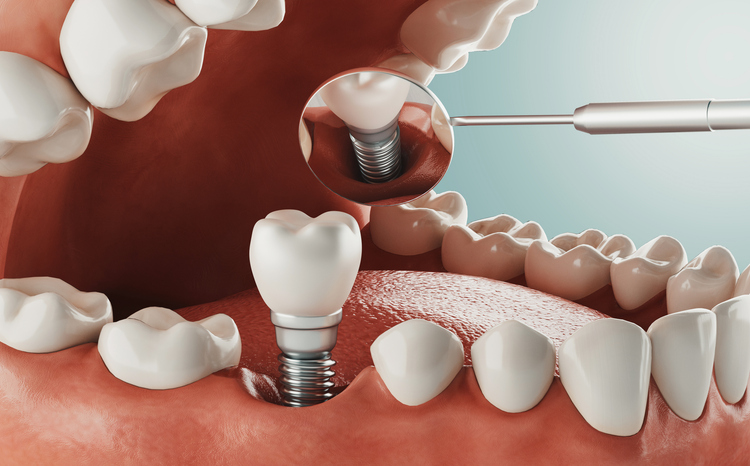 Missing teeth affect more than the way you look—they undermine oral function, jeopardize long‑term health, and can chip away at self‑confidence. Whether you have lost a single tooth to decay or require a full‑arch replacement after years of wear,
Missing teeth affect more than the way you look—they undermine oral function, jeopardize long‑term health, and can chip away at self‑confidence. Whether you have lost a single tooth to decay or require a full‑arch replacement after years of wear, 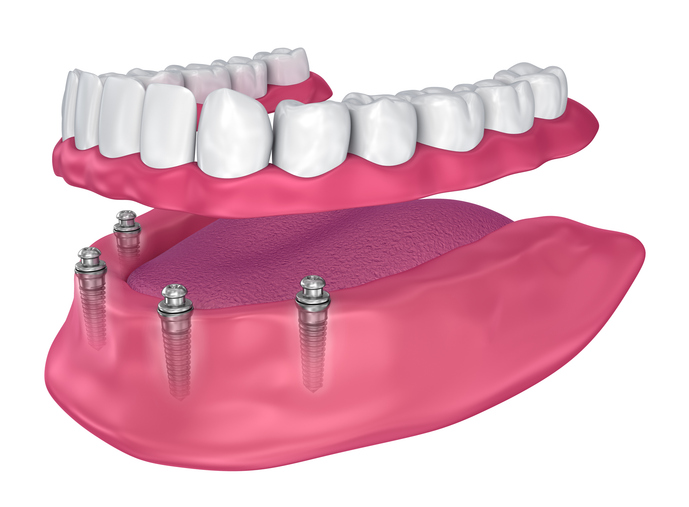 Removable dentures have been dentistry’s go-to solution for total tooth loss for more than a century. Yet anyone who has worn them knows the frustrations: slipping while you speak, clicking mid-meal, acrylic that dulls taste, and a constant worry about embarrassing mishaps.
Removable dentures have been dentistry’s go-to solution for total tooth loss for more than a century. Yet anyone who has worn them knows the frustrations: slipping while you speak, clicking mid-meal, acrylic that dulls taste, and a constant worry about embarrassing mishaps. 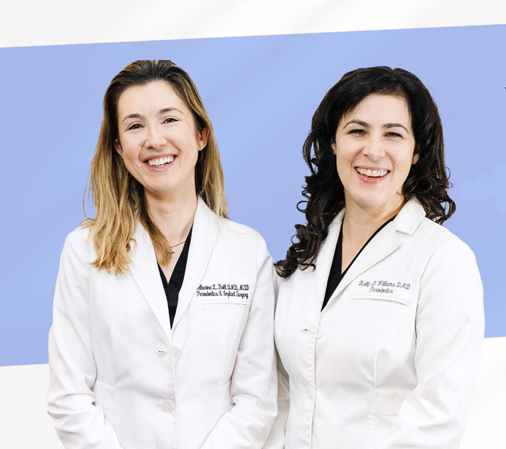 When it comes to maintaining a healthy smile, many people focus on their teeth—but healthy gums are just as important. Your gums provide the foundation for your teeth, supporting their stability and protecting them from bacteria and infection. Neglecting gum health can lead to serious oral health issues, including gum disease, tooth loss, and even complications that affect overall health.
When it comes to maintaining a healthy smile, many people focus on their teeth—but healthy gums are just as important. Your gums provide the foundation for your teeth, supporting their stability and protecting them from bacteria and infection. Neglecting gum health can lead to serious oral health issues, including gum disease, tooth loss, and even complications that affect overall health.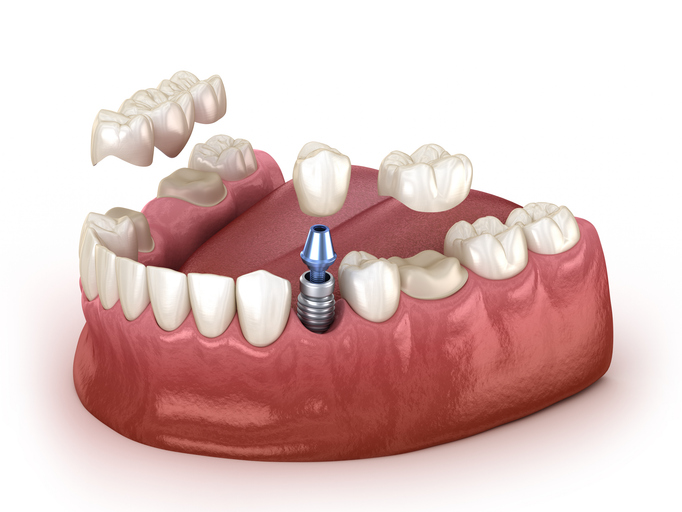 At Pinnacle Center – Dental Implants & Periodontics in Pittsburgh, PA, we understand that choosing the best treatment to replace your missing teeth is an important decision. With so many options available, it can be challenging to feel confident about which route to take. Today, we would like to offer clarity on the differences between
At Pinnacle Center – Dental Implants & Periodontics in Pittsburgh, PA, we understand that choosing the best treatment to replace your missing teeth is an important decision. With so many options available, it can be challenging to feel confident about which route to take. Today, we would like to offer clarity on the differences between 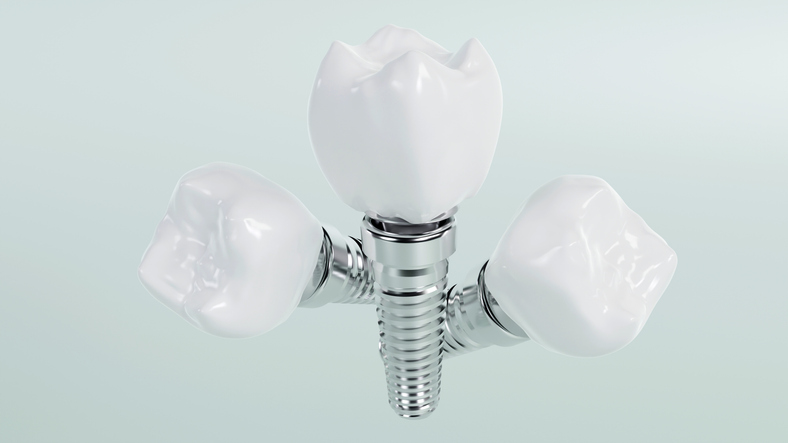 If you have been looking for a dependable, long-term way to replace missing teeth,
If you have been looking for a dependable, long-term way to replace missing teeth,  Dental implant technology has come a long way since its inception, offering patients more efficient, comfortable, and lasting solutions for replacing missing teeth. At Pinnacle Center – Dental Implants & Periodontics, our team is dedicated to providing you with advanced care tailored to your unique needs. Let’s explore some of the latest innovations in dental implant technology and how they benefit patients seeking a healthier, more confident smile.
Dental implant technology has come a long way since its inception, offering patients more efficient, comfortable, and lasting solutions for replacing missing teeth. At Pinnacle Center – Dental Implants & Periodontics, our team is dedicated to providing you with advanced care tailored to your unique needs. Let’s explore some of the latest innovations in dental implant technology and how they benefit patients seeking a healthier, more confident smile.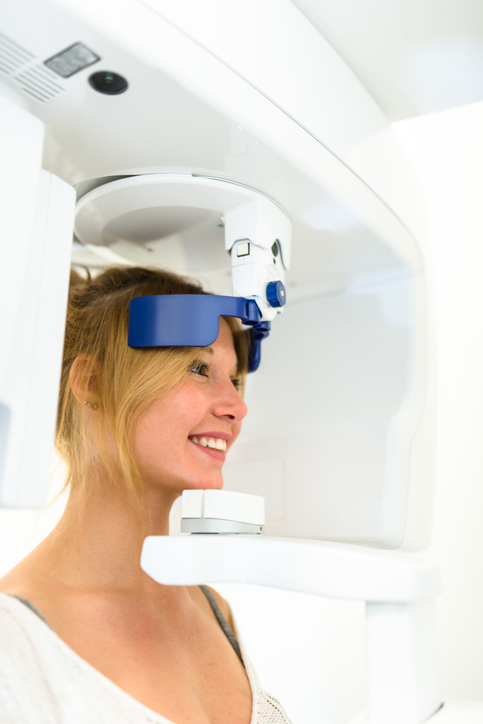 Advancements in dental technology have made it easier than ever for periodontists to provide accurate diagnoses and effective treatment plans. One such advancement is Cone Beam Computed Tomography (CBCT), a specialized imaging technology that has transformed the way dental care is delivered. At Pinnacle Center – Dental Implants & Periodontics, located in Pittsburgh, PA, we are proud to utilize CBCT technology to ensure precise and efficient care for our patients.
Advancements in dental technology have made it easier than ever for periodontists to provide accurate diagnoses and effective treatment plans. One such advancement is Cone Beam Computed Tomography (CBCT), a specialized imaging technology that has transformed the way dental care is delivered. At Pinnacle Center – Dental Implants & Periodontics, located in Pittsburgh, PA, we are proud to utilize CBCT technology to ensure precise and efficient care for our patients.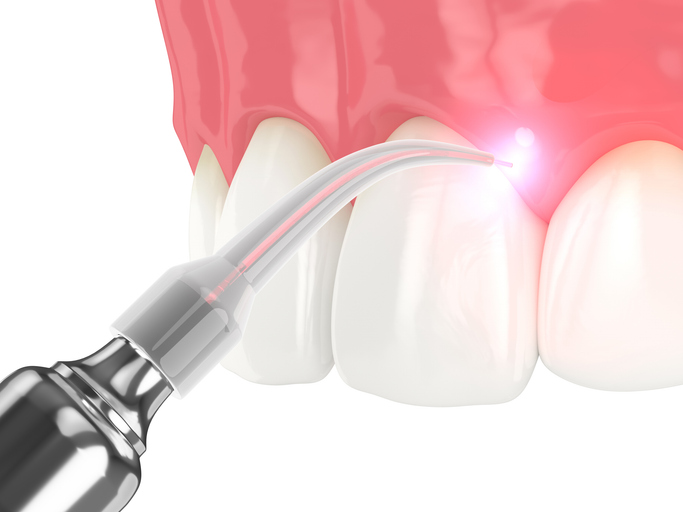 Innovative technology is reshaping the way dental care is delivered, and laser-guided dentistry is leading the charge. This cutting-edge approach offers patients a minimally invasive alternative to traditional methods, enhancing precision and reducing recovery times. At Pinnacle Center – Dental Implants & Periodontics in Pittsburgh, PA, our periodontists,
Innovative technology is reshaping the way dental care is delivered, and laser-guided dentistry is leading the charge. This cutting-edge approach offers patients a minimally invasive alternative to traditional methods, enhancing precision and reducing recovery times. At Pinnacle Center – Dental Implants & Periodontics in Pittsburgh, PA, our periodontists, 